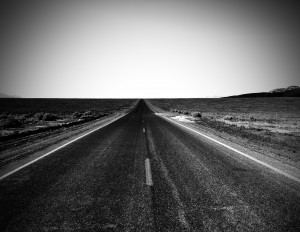Thoughts on Death
When I was 15, I had my first serious bout with death angst. I believe it is common, at this age, on the threshold of adulthood and in the throes of a hormonal frenzy, to think about the life that lies ahead. One has to choose direction. I remember spending a whole day in bed, paralyzed with existential fear, completely unable to put any words to it. I was just totally and completely overwhelmed with the world – and my place in it.
A few years later, a guy in my class was meaninglessly killed in a skiing accident and I was shocked to bear witness to death, taking away all that potential, all that youth.
For a while I was thus again painstakingly focused on death; my own and the death of those I loved. Every time I said goodbye to him, I would hold my little brother so tightly, as if I was saying goodbye for the last time. I would imagine street signs falling off and decapitating me. While all this was happening, I also lead my life – finished high school, travelled across North American with my bosom friend and began college. My bachelor year, I studied psychology at the University of Bergen in Norway. There, finally, I was introduced to the American psychologist Irving Yalom.
I remember lying on an extremely ugly orange sofa bed in my tiny dorm room, completely engulfed in his book “Existential psychotherapy”. Fatherly, wisely and eloquently, he walked me through the four “givens” of the human condition: isolation, meaninglessness, mortality and freedom.
I’ll just quickly run you through them:
Mortality (Death): We will all die. There is no getting around it. Not fame, fortune, spiritual enlightenment, religion or any of the billion psychological defense mechanisms people muster, can make it go away. One day, you and I shall both be dead. It is the ultimate loss of control, and dealing with it is so painful that most of us can only look directly at it for a very short time before the pain makes us avert our eyes, like staring at the sun.
Isolation: We are all, ultimately, alone. Sure, we can have close and meaningful relationships, soul mates, great loves and life partners. Still, despite all our best efforts to describe our lives to others, no one will ever fully understand our individual experience. They simply cannot.
Meaninglessness: The universe has no inherent meaning – meaning is something we attribute to the world.
Freedom: With freedom comes responsibility. We cannot choose what happens to us but we can choose how we respond to it.
If these four basic conditions strike you as depressing, I can reassure you that staring death in the face can have positive outcomes. It can motivate people to live their fullest lives – outliving their potential. Having death as a companion can serve as a reminder to live in the present – not sweating the small stuff but cutting through the bullshit to the important things in life; make you count your blessings and get the full experience from life.
I wish you a most happy death. And before that, a most blessed life.
Cinda loves you.
…
Related posts:
Welcome
This is where I blog about life as a woman, wife, mother, bad ass mother blogger, friend, lover, foodie and allround hellbender.
Wanna drop me a line? You may do so at mail[at]cindafuckingrella[dot]com.
Sharing is Caring.
Cinda loves you!
Tags
Adventure Aging Awesome Women Baby Blogging blowjob Cake Christmas Delish Dessert Family Feel-Good Flowers Food Foodie friendship Fun funny Girlfriends Gratitude Gravity Happiness Healthy Hope In Love Inspiration Job Kids Laughing life Love Marriage Mom Mommy Motherhood Paris perspective Sex shoes Summer women Work write off Yumminess YummyArchives
- December 2014 (1)
- November 2014 (1)
- October 2014 (2)
- September 2014 (1)
- August 2014 (1)
- July 2014 (1)
- June 2014 (1)
- May 2014 (2)
- April 2014 (2)
- February 2014 (3)
- January 2014 (3)
- December 2013 (1)
- November 2013 (4)
- October 2013 (2)
- September 2013 (3)
- August 2013 (9)
- July 2013 (2)
- June 2013 (4)
- May 2013 (14)
- April 2013 (5)
- March 2013 (5)
- February 2013 (2)
- January 2013 (6)
- December 2012 (2)
- November 2012 (6)
- October 2012 (7)
- September 2012 (8)
- August 2012 (9)
- July 2012 (2)
- June 2012 (11)
- May 2012 (9)
- April 2012 (16)
- March 2012 (9)
- February 2012 (21)
- January 2012 (7)
- December 2011 (9)
- November 2011 (9)
- October 2011 (7)
- September 2011 (8)
- August 2011 (11)
- July 2011 (16)
- June 2011 (16)
- May 2011 (1)
- April 2011 (4)
- March 2011 (4)
- February 2011 (6)
- October 2010 (3)







